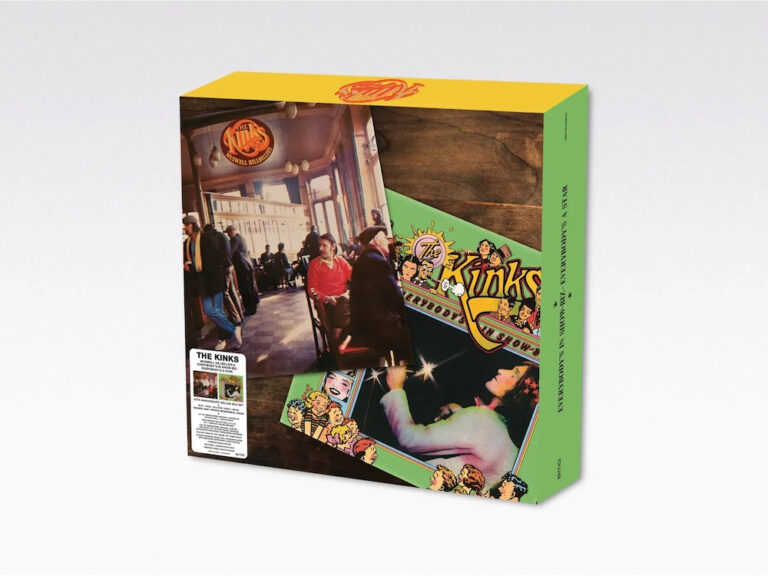You may feel you can skip your daily weightlifting session on the day you lug home Muswell Hillbillies/Everybody’s in Show-biz – Everybody’s a Star, the eight-pound, 50th anniversary edition of the Kinks’ first two albums for the RCA label.
Delivering everything but group leader Ray Davies’s kitchen sink, the box set includes four CDs – one for each of the two original albums, plus one with 11 new remixes by Davies and one with a “tour montage” that incorporates previously unreleased versions – as well as all the above content on six colored vinyl LPs. Also featured are an oversized 52-page hardcover book with liner notes and new band interviews; a 1971 home movie from Davies on a Blu-ray disc; six photo prints; a map of London’s Muswell neighborhood, where Davies and his brother and bandmate Dave grew up; and a pin/badge with a Kinks logo.
All these extras notwithstanding, the main attractions are well-remastered copies of the two original albums: Muswell Hillbillies, which came out in November 1971, and Everybody’s in Show-biz – Everybody’s a Star, which showed up only about nine months later and combines studio recordings with excerpts from a pair of March 1972 Carnegie Hall concerts in New York.
Muswell Hillbillies, which flopped commercially, lacks an obvious follow-up to “Lola,” the Kinks’ lyrically ahead-of-its-time hit from the prior year. Still, this 10th studio album offers Davies’s engaging albeit acerbic take on the working class and modern life. There are numbers that musically and lyrically reflect his roots, such as the title cut, which employs some trad-jazz elements and references his childhood neighborhood, but that song and others such as also draw on American country music as well as rock and theatrical and cabaret styles.
Though some of the songs are upbeat, the lyrics, which showcase Davies’s sardonic wit, paint a decidedly different picture. “I’m a 20th-century man but I don’t want to be here” is among the first lines he utters on the LP, and it seems most of the album’s other protagonists would rather be somewhere else as well. The one in “Acute Schizophrenia Paranoia Blues,” for example, confides that “I’m too terrified to walk out of my own front door,” and the one in “Complicated Life” confesses that “I woke this morning with a pain in my neck, a pain in my heart, and a pain in my chest.”
In “Here Come the People in Grey,” the state is forcing the unhappy singer from his home while the poignant “Oklahoma USA” describes a woman living in her dreams because her work bores her and her home is in decay. You might expect the proceedings to be cheerier in “Holiday,” where Davies proclaims, “Oh what a lovely day today…to have a little holiday”—but only until he adds that he’s “lookin’ in the sky for a gap in the clouds” and “the salt gets in my blisters and the sand gets in my hair.” And: “The sea’s an open sewer but I really couldn’t care, I’m breathing through my mouth, so I don’t have to sniff the air.” A lovely day indeed.
The discontent continues on the studio disc in Everybody’s in Show-biz – Everybody’s a Star, which also failed to rack up significant sales. Another loosely constructed concept album, this record focuses on touring and fame. In “Here Comes Yet Another Day,” for instance, Davies seems to be talking about himself when he sings “Drank myself to sleep last night, beer stains on my pillow, I gotta pull my things together…Tune up, start to play…can’t be late, mustn’t make the people wait.” Amid the gloom, though, is some beautiful music, including the reflective “Sitting in My Hotel” and “Celluloid Heroes,” a song about stardom that musically and lyrically ranks with the best numbers Davies has ever written.
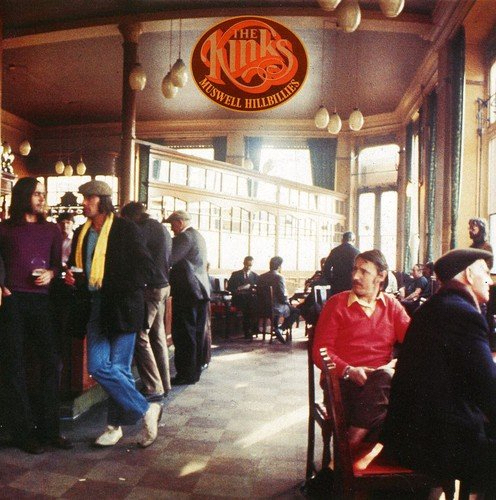
The album’s campy concert tracks have their moments but mostly disappoint. The band delivers the title cut and three other numbers from Muswell Hillbillies, several other Kinks compositions, and vaudevillian readings of “Banana Boat Song” (aka “Day-O”), the Jamaican folk song; “Mr. Wonderful,” the 1955 Broadway number; and “Baby Face,” the 1920s Tin Pan Alley jazz standard. The only Kinks hit on the program is “Lola,” but on that track, the group merely provides instrumentation while the audience supplies the vocals.
Still, this box set has a lot to offer. Serious fans will be interested in its wide array of extras and many listeners will likely warm up to Muswell Hillbillies and Everybody’s in Show-biz – Everybody’s a Star, both of which deliver more pleasures than their initial sales and reviews would suggest.
Also Noteworthy
John McCutcheon, Leap!. After listening to this 43rd (!) LP from John McCutcheon, you won’t be surprised to learn that he often collaborates with Tom Paxton. They share a penchant for traditional folk, seem to have similar senses of humor and eyes for detail, and even sound a lot alike. (McCutcheon’s baritone may also remind you of Richard Shindell.)
The 18 tracks on this all-originals set cover wide terrain. On “The Ride,” for example, McCutcheon offers a philosophy of life, while “The Troubles” addresses the Holocaust, “Fuller Brush” delivers a traveling salesman’s pitch, and “Listen” talks about a friend’s failed romance. (“I tried to warn you, tried to tell you he was a jerk,” he begins.). The lyrics command attention throughout the CD and so does the music, which prominently features fiddler Stuart Duncan and includes such guests as guitarist Pete Kennedy of the Kennedys, flutist Seamus Egan, and singers Kathy Mattea and Tommy Sands.
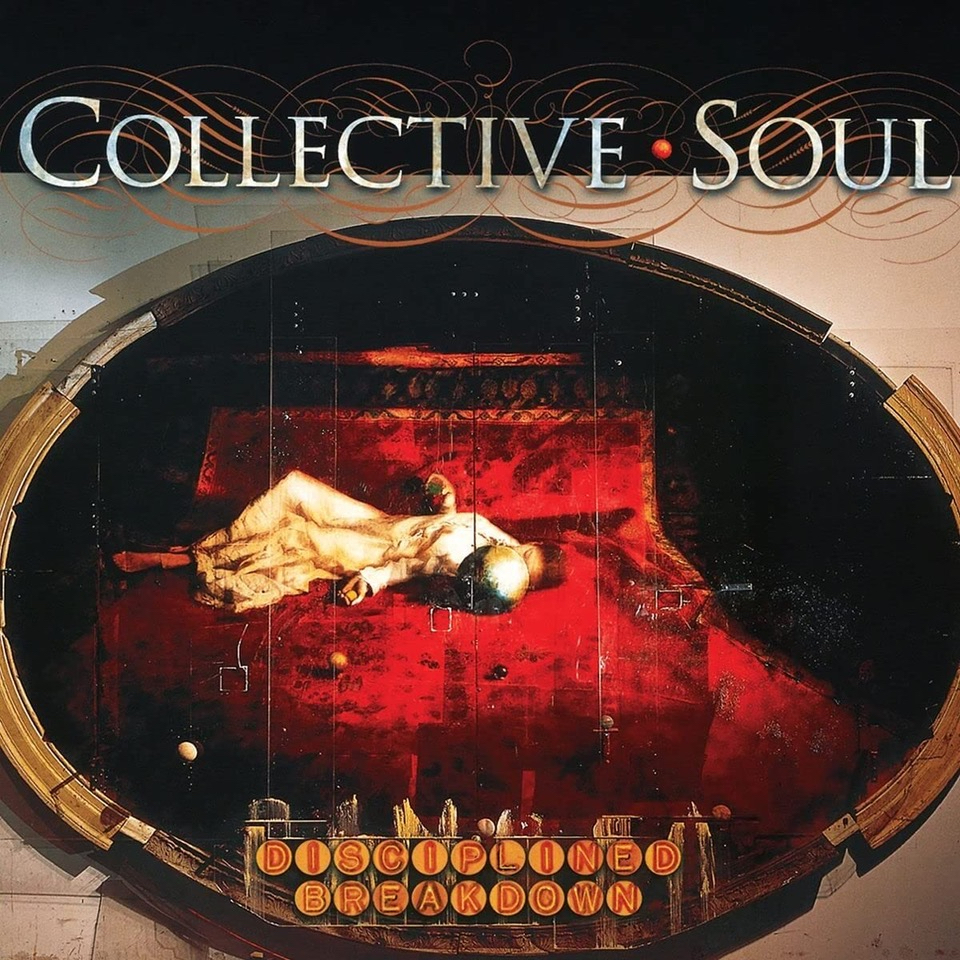
Collective Soul, Disciplined Breakdown (25th Anniversary Edition). The Georgia-based alt-rock outfit Collective Soul created its aptly titled 1997 third album while immersed in a legal battle with its former manager that resulted in a freezing of financial assets. But the group, whose first two albums were multiplatinum sellers, managed to turn lemons into lemonade. Recording on the cheap because of a lack of available funds, the band’s members turned their frustrations into another hit album, and one that at times is as hook-filled and addictive as anything you’ll hear from, say, U2 or Oasis.
This 25th anniversary, two-CD edition offers a remaster of the original LP, an alternate version of one of its tracks, an alternate mix of another, and, most notably, an 18-song, hour-and-a-half contemporaneous Chicago concert that features strong renditions of hits from the group’s first two albums, eight numbers from Disciplined Breakdown, and an energized cover of Ozzy Osborne’s “Crazy Train.”
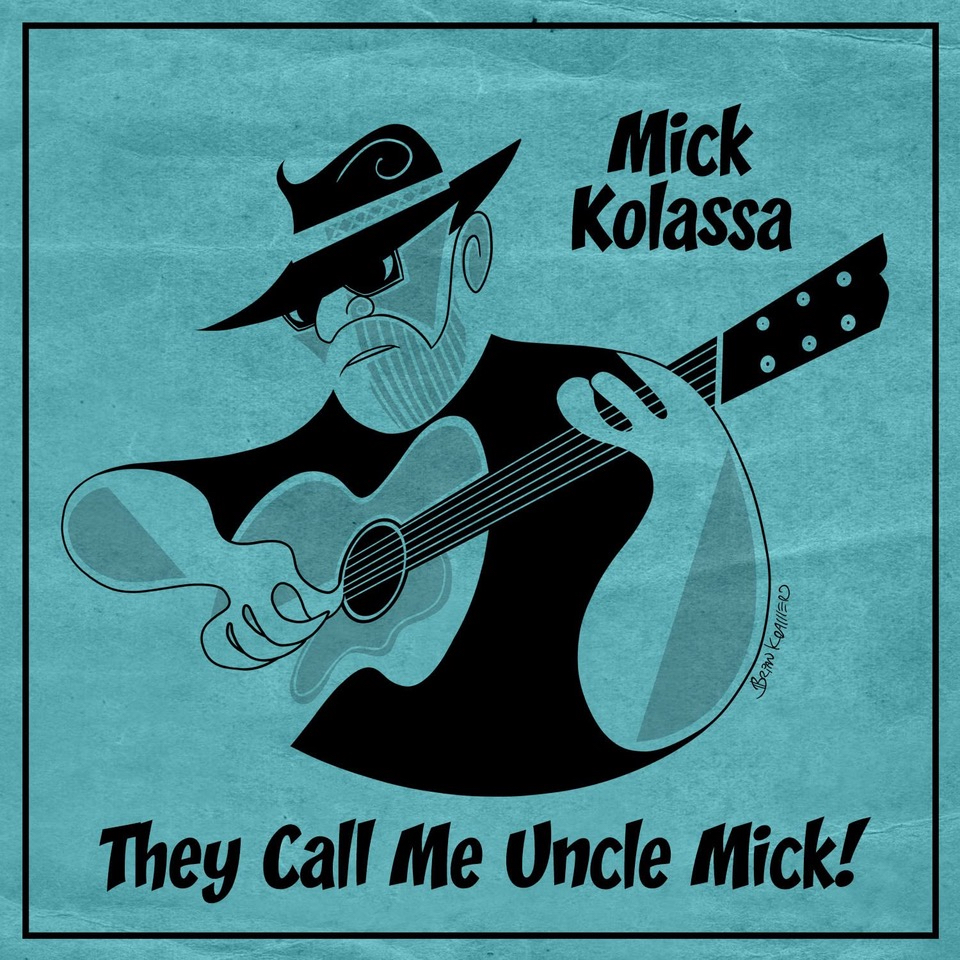
Mick Kolassa, They Call Me Uncle Mick!. Blues singer and guitarist Mick Kolassa puts his distinctive stamp on music from multiple genres and eras in this fine acoustic collection.
The album opens with “My Pencil Won’t Write No More,” a lighthearted 1931 number by the Mississippi Shieks’ Bo Carter, and includes “Sunny Side of the Street,” the Jimmy McHugh and Dorothy Fields standard that dates from the same period. Hank Williams’s “I’m So Lonesome I Could Cry” is also here, as are six Kolassa originals and bluesy versions of John Prine’s “Daddy’s Little Pumpkin” and Joni Mitchell’s “Woodstock.” Among the large and stellar backup crew are guitarist and percussionist Jeff Jensen, who co-produced with Kolassa, a violinist, a couple of slide guitarists, and two harmonica players, including Bobby Rush on one track.
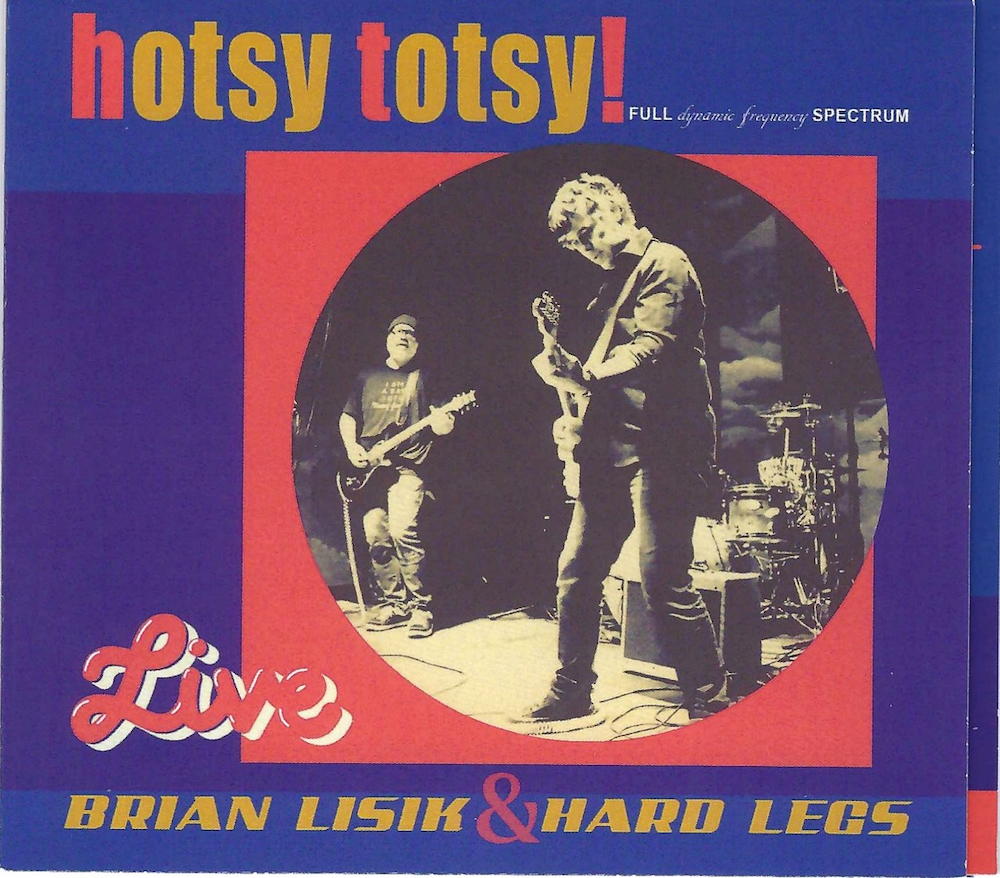
Brian Lisik & Hard Legs, Hotsy Totsy!. Akron, Ohio–based Brian Lisik follows up eight studio albums with this incendiary concert set, which finds the singer and his two accompanists occupying a sweet spot between garage rock and power pop and making a much bigger sound than you’d expect from three people.
You may be tempted to turn the volume up loud enough for the neighbors to call the cops, but before they arrive, you’ll be rewarded with passionate, tightly constructed rock and roll plus the occasional dose of humor. (“Bye Bi Love,” for example, is about falling in love with a lesbian.) There are also multiple nods to vintage rock, such as when Lisik covers the Drifters’ “Under the Boardwalk” and works a quote from the Troggs’ “Love Is All Around” into a self-penned rocker called “Junior High School.”
Jeff Burger’s website, byjeffburger.com, contains five decades’ worth of music reviews, interviews, and commentary. His books include Dylan on Dylan: Interviews and Encounters, Lennon on Lennon: Conversations with John Lennon, Leonard Cohen on Leonard Cohen: Interviews and Encounters, and Springsteen on Springsteen: Interviews, Speeches, and Encounters.


